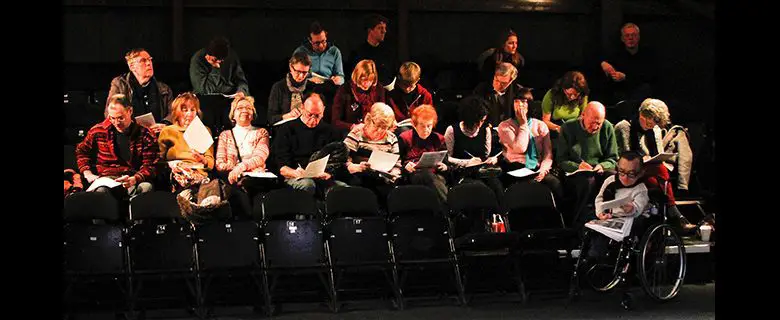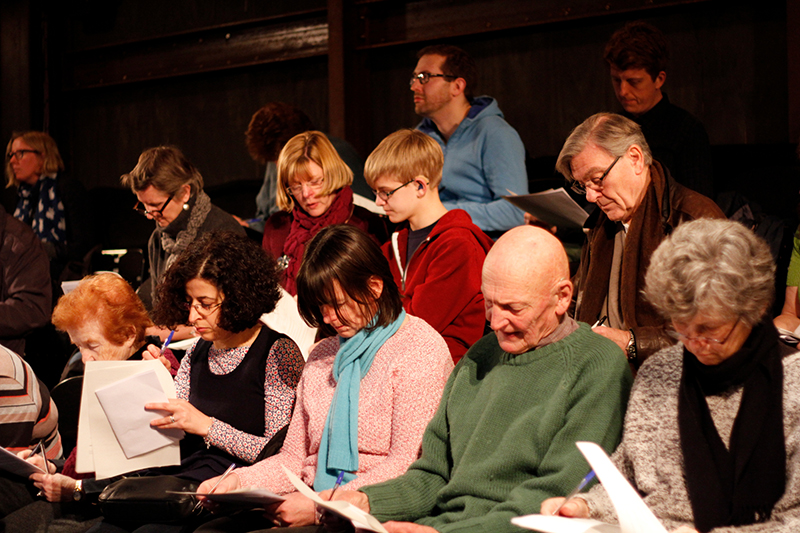
Improving access to theatre for deaf and hard of hearing audiences
For many people who are deaf or hard of hearing, a visit to the theatre can be a challenging prospect. Up until about fifteen years ago some deaf or hard of hearing theatregoers had to resort to taking the script into the theatre with them and following it with a torch. That was until Stagetext came along, providing text-based access to arts and culture for deaf, deafened and hard of hearing audiences.
In theatre that means we provide captioning services, where a script of the play or musical is prepared in advance and then outputted to a screen, usually integrated into the set or at the side of the stage, as the words are spoken by the actors.
Whilst many theatres are now captioning their performances, often there is only one captioned performance of a particular play or, as with long-running shows in the West End, maybe one or two captioned performances a year. What if you can’t make the date of the captioned performance, or you want to celebrate with a trip to the theatre on a date when the show isn’t captioned? Surely there should be more options and freedom of choice open to deaf, deafened and hard-of hearing theatregoers?


We thought that if we could automate the captioning process and successfully output to either a caption screen or a personal display device, such as Sony SmartEye glass or tablets, whilst maintaining standards of access then we could massively increase the number of shows that are accessible. We applied for a NESTA grant to undertake research and development, in collaboration with our technology partner ScreenSystems and our research partner Dr. Pablo Romero Fresco at the University of Roehampton.
As part of the research and development process we held a testing weekend at the National Theatre’s Temporary Theatre. This was to test both the automated CaptionCue technology as well as a number of different devices. Three actors performed short sections of theatre, from Shakespeare to new writing to musical theatre, to four different groups of volunteers; invited audiences with a range of hearing loss, as well as hearing audiences. Each group was given a different type of display technology on which to experience the theatre and then asked to record their comments.
The response at the testing weekend was great, a testament to both to the ambition of the project and to the degree of success to which we got the beta test version of CaptionCue to work and actually automatically captions at the test event. We are now working on the outcomes of the research which we look forward to sharing at the end of development period in June.
By Roger Graham
Get in touch by messaging us on Facebook, tweeting us @DHorizons, emailing us at editor@disabilityhorizons.com or leaving your comments below.